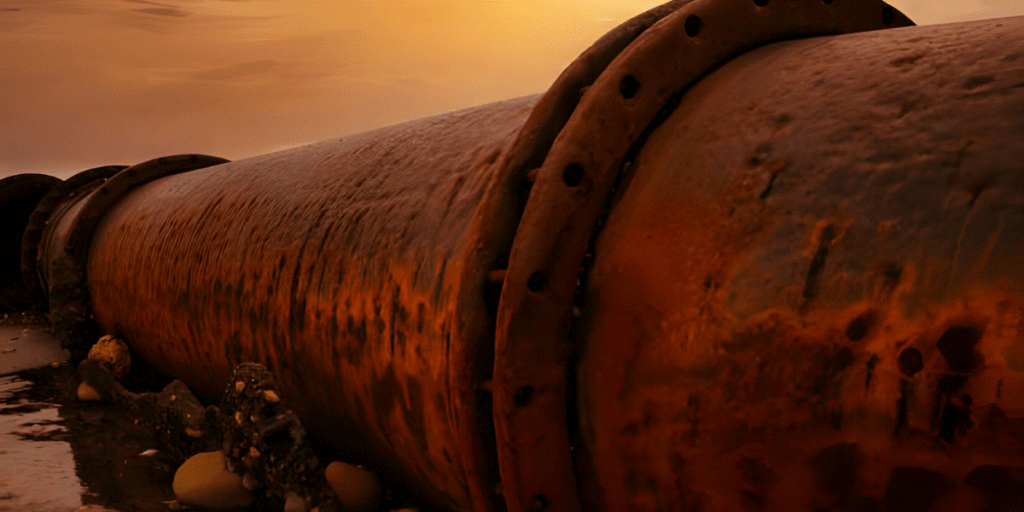- Open 24/7 We're Ready to Help
- Call Us 0404 830 830
- Call Us 0404 830 830
Plumbing systems are crucial for modern infrastructure, providing essential services like clean water supply and wastewater disposal. However, the durability and effectiveness of these systems depend on the quality of water flowing through the pipes.
Unfortunately, this factor is often overlooked. This article will explore the link between water quality and plumbing system longevity, emphasising the importance of water quality management for sustainable infrastructure.
Today, you will learn about the effects of hard water on plumbing systems. Stay on this blog to learn about the solutions. Keep reading!
Water quality is a term used to describe water’s chemical, physical, and biological properties. It is determined by key indicators such as pH, hardness, and the presence of contaminants, which can originate from various sources, including industrial pollutants, minerals from the ground, and ageing pipes.
If you are wondering, ‘Does hard water damage pipes?’ then a simple answer is yes. Poor water quality can adversely affect plumbing systems, present health risks to consumers, and negatively impact the environment. Therefore, it is crucial to maintain water quality to ensure its safety and sustainability.
Plumbing systems are intricate networks that are made up of pipes, fittings, and fixtures. Each component is vulnerable to wear and tear over time due to its extensive use.
It is essential to understand that plumbing systems require regular maintenance to prevent issues from occurring and to ensure their smooth operation.
Plumbing systems are often prone to problems such as corrosion, clogs, and leaks. Understanding these vulnerabilities is important to appreciate the impact of water quality on their durability.
By doing so, one can take necessary precautions to prevent these issues and ensure the smooth functioning of their plumbing system. If there is ever a need for emergency plumbing in Sydney, get in touch with Local Emergency Plumber for swift services!
Corrosion is a common problem in plumbing systems, and the pH level of water significantly impacts it. Water with a low pH is acidic and tends to corrode metal pipes and fittings over time.
This gradual corrosion can lead to leaks, blockages, and other plumbing issues that can cause extensive damage to the entire system. Therefore, monitoring water pH levels and taking necessary measures to prevent corrosion in plumbing systems is essential.
Water quality is crucial to maintaining a healthy plumbing system. When water’s pH levels are too high, it can lead to the formation of alkaline water, which causes a different form of corrosion. This can weaken the structural integrity of pipes, eventually resulting in leaks and burst pipes.
Similarly, if water contains high levels of minerals such as calcium and magnesium, they can accumulate inside pipes and fixtures, leading to the formation of mineral deposits known as scale.
This can reduce water flow, increase pressure, and decrease the plumbing system’s efficiency. Therefore, it is essential to monitor water quality to ensure the longevity and efficient functioning of plumbing systems.

Water contaminants, including heavy metals, bacteria, and chlorine, can significantly harm plumbing system materials. For example, extensive chlorine in the water supply can deteriorate rubber gaskets and seals, resulting in leaks.
Bacteria can also cause biofilm formation inside pipes, aggravating corrosion and clogging problems. Moreover, heavy metals such as lead can seep into the water supply, causing severe health risks for consumers and damaging plumbing components.
It is, therefore, critical to ensure that the water supply is free from contaminants to safeguard the plumbing system.
If you have been wondering, ‘Is hard water bad for pipes?’ then water quality significantly impacts the health of plumbing systems.
This is evident in real-world examples where poor water quality caused lead contamination, damaging pipes, health crises, and significant financial burdens.
Similarly, in regions with hard water, plumbing systems face scaling issues, which reduce the lifespan of pipes and require frequent maintenance.
On the other hand, cities like Zurich, Switzerland, have demonstrated the positive effects of well-managed water quality on the longevity of plumbing systems and minimised repair costs.
These cities are successful examples of how proper water management can ensure the longevity of plumbing systems.
Maintaining the longevity of plumbing systems is vital to prevent costly repairs. Water quality is one of the key factors contributing to the health of plumbing systems. Therefore, it is crucial to have effective water quality management in place.
One way to achieve this is by performing regular water testing and monitoring. This allows for early identification of potential issues and timely interventions.
Another important aspect of water quality management is through proper treatment methods. Various treatment methods are available, such as water softening to reduce hardness or chlorine removal, which can enhance water quality before it enters the plumbing system.
By applying these methods, you can prevent mineral deposits from building up and improve the overall quality of water that flows through your plumbing system.
Finally, adequate maintenance practises can significantly extend the life of plumbing components. Regular cleaning and inspections are essential to ensure the plumbing system functions correctly.
By doing so, you can identify any potential issues before they escalate into major problems, thereby reducing the risk of costly repairs. Overall, effective water quality management is a critical step in maintaining the longevity of your plumbing system.
Governments and regulatory bodies are crucial in ensuring that water quality standards are met. The current regulations mainly focus on safe drinking water standards and wastewater treatment.
However, there is a need for improvement, especially in implementing stricter guidelines to prevent the release of harmful contaminants and promote sustainable water management practices.
Effective collaboration among regulators, water utilities, and the public is essential to maintain water quality standards.
As we look towards the future, it is important to note that we may face increasing challenges related to water quality and the longevity of plumbing systems. Factors such as climate change, population growth, and ageing infrastructure pose significant threats to the quality of our water supply.
However, there is hope in technology and innovation. Advanced water treatment technologies, eco-friendly plumbing materials, and efficient leak detection systems are some of the potential solutions that can help safeguard our plumbing systems in the future.
By implementing these solutions, we can work towards ensuring a sustainable and safe water supply for generations to come.
Water quality is crucial for preserving plumbing systems. Poor-quality water can lead to corrosion, scaling, and damage.
Regular testing, treatment, and maintenance are needed to mitigate these risks. Collaboration and innovation are key to safeguarding the health of our plumbing infrastructure.
Plumbing systems are crucial for modern infrastructure, providing essential services like clean water supply and wastewater disposal. However, the durability and effectiveness...
Read MoreAs the winter months’ approach, it’s important to prioritise your safety and comfort as a homeowner. However, it’s also crucial not to...
Read More


